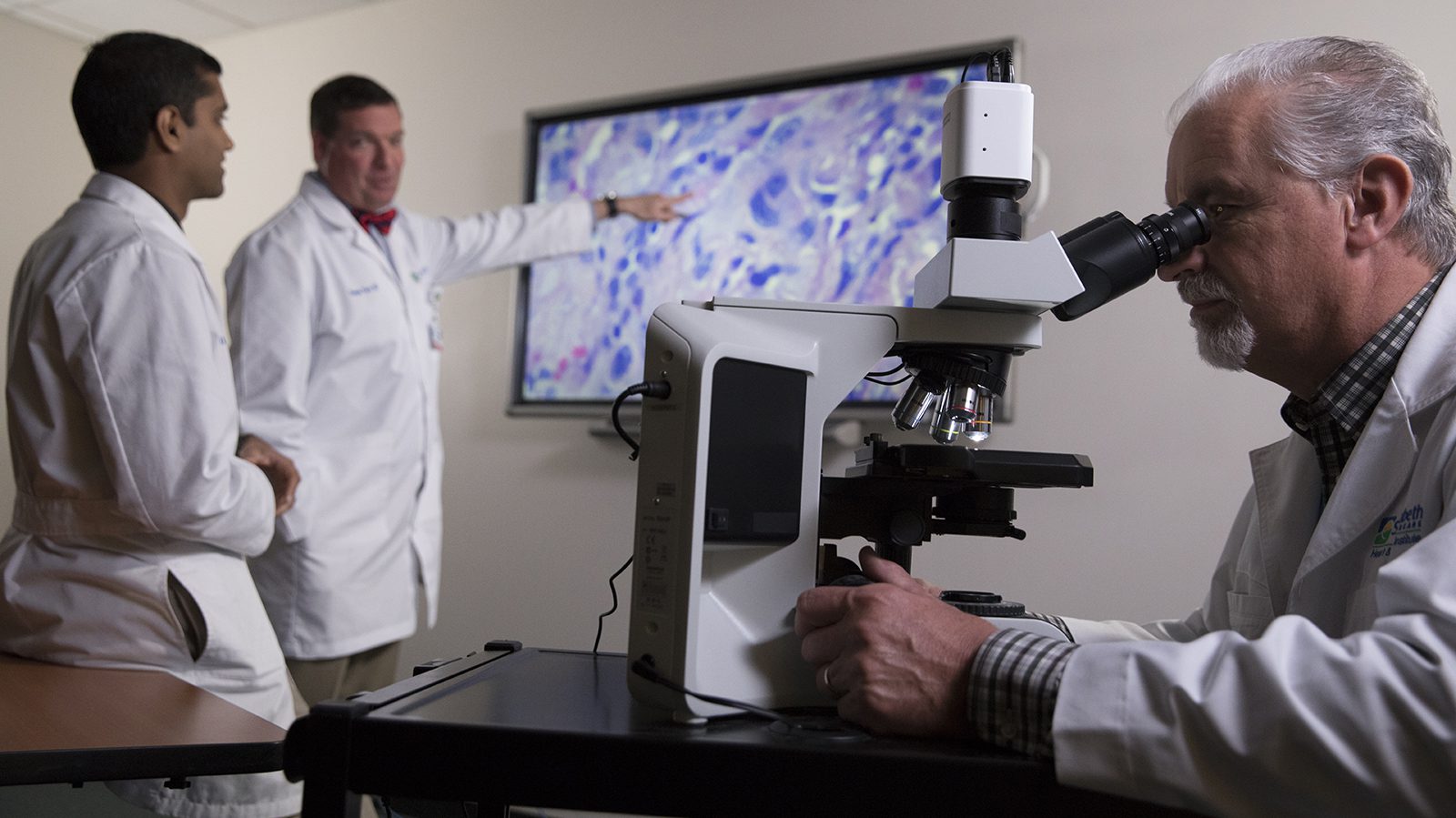Testicular Cancer
Testicular cancer occurs inside your testicles.
There are two main types of testicular cancer:
Risk Factors for Testicular Cancer
Several factors can increase your risk of developing testicular cancer. They include:
- Abnormal testicle development.
- A family history of testicular cancer.
- Being a male between the ages of 15 and 35.
- Being Caucasian.
- Having an undescended testicle.
Symptoms of Testicular Cancer
The early symptoms of testicular cancer typically include pain, swelling and a lump or mass on your testicles.
Other signs include:
- Back pain.
- Enlarged breast tissue.
- Sudden fluid accumulation in your scrotum.
- Swollen lymph nodes in your groin.

Make an appointment
For more information, please contact your oncologist or the Cancer Care Center at (859) 301-4000.
Diagnosing Testicular
In some cases, testicular is discovered during a self-examination. In others, your doctor detects a lump or concerning area during a routine physical exam.
Tests that your doctors may perform to determine if you have testicular include:
- Blood tests.
- Cystoscopy to view inside your penis.
- Imaging such as X-rays, CT scans, MRI scans or ultrasound.
- Surgery to remove and analyze the affected testicle.
- Tissue biopsy.
- Ultrasound.
Treating Testicular
Both testicular may require surgery, chemotherapy and radiation therapy.
Treatment for testicular cancer may include:
- Surgery to remove the testicle.
- Surgery to remove nearby lymph nodes.
Your Cancer Care Team
The team includes medical oncologists specializing in immunotherapy and precision medicine, surgical oncologists, radiation oncologists, interventional radiologists, thoracic surgeons, pain management specialists, genetic counselors, pathologists, nutritionists, pharmacists, nurses and support staff. They work together to create a treatment plan that’s just right for you.


